Metamorphosis [By Franz Kafka] Review and Analysis ESP/ENG
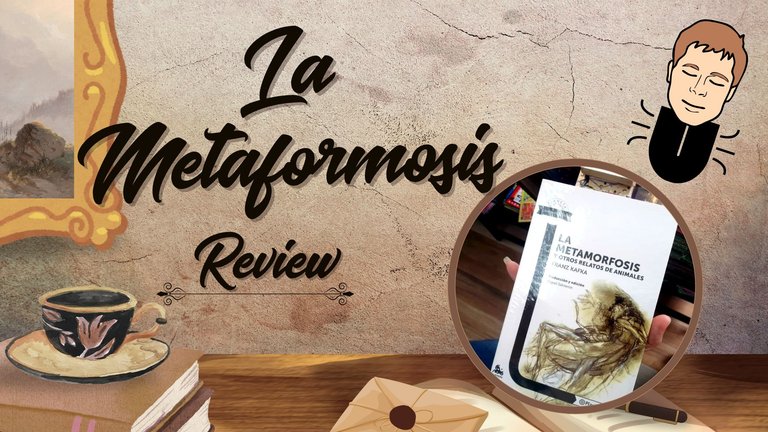
Portada diseñada por mi en el editor de Canva
A couple of weeks ago I was very happy with my sister visiting for the first time one of the biggest bookstores in our city, there were so many books that I would have liked to buy but unfortunately at that time I had no money, however in one of the shelves I could see something that caught my attention and it only cost 10 dollars, so I did not resist and I bought it. It was a copy of The Metamorphosis by Fran Kafka, a book that I have wanted to read eagerly after knowing that it was partly the inspiration of Gabriel García Márquez (my favorite Latin American writer) as far as magical realism is concerned, so that book had to be mine 😄.
Hace más o menos un par de semanas yo estaba muy feliz con mi hermana visitando por primera vez una de las librerías más grandes de nuestra ciudad, había tantos libros que me hubiese gustado comprar pero lamentablemente en ese momento no tenía dinero, sin embargo en uno de los estantes pude ver algo que llamó poderosamente mi atención y además solo costaba 10 dólares, así que no lo resistí y lo compré. Se trata de un ejemplar de La Metamorfosis de Fran Kafka, un libro que he querido leer con ansias luego de saber que en parte fue la inspiración de Gabriel García Márquez (mi escritor latinoamericano favorito) en cuanto al realismo mágico se refiere, así que ese libro debía ser mío 😄.
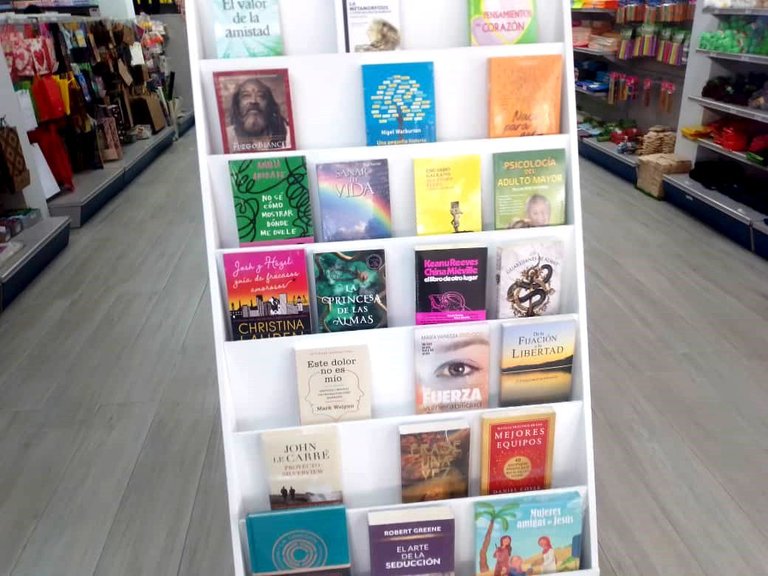
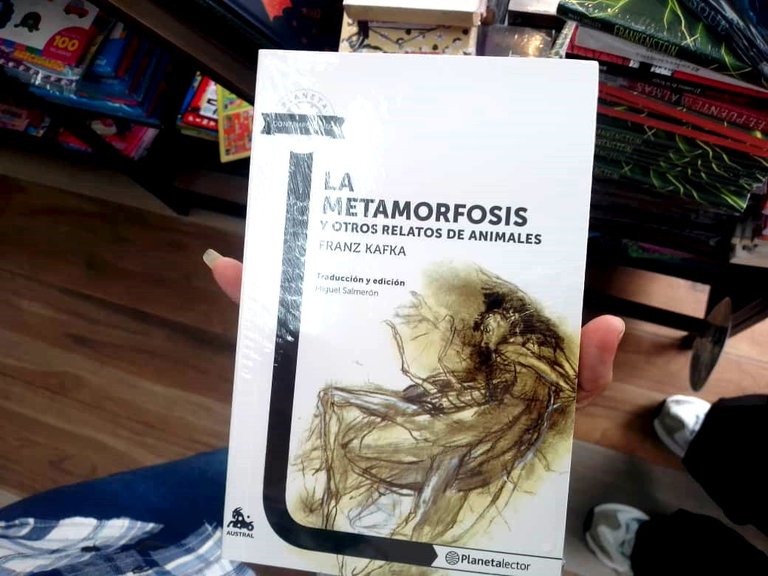
But before I start with my analysis I would like to give you a brief summary of the story so you know what it is about in case you have never read it 😉.
Pero antes de iniciar con mi análisis me gustaría dejarles un breve resumen de la historia para que conozcan de qué se trata en cas de que jamás la hayan leído 😉.
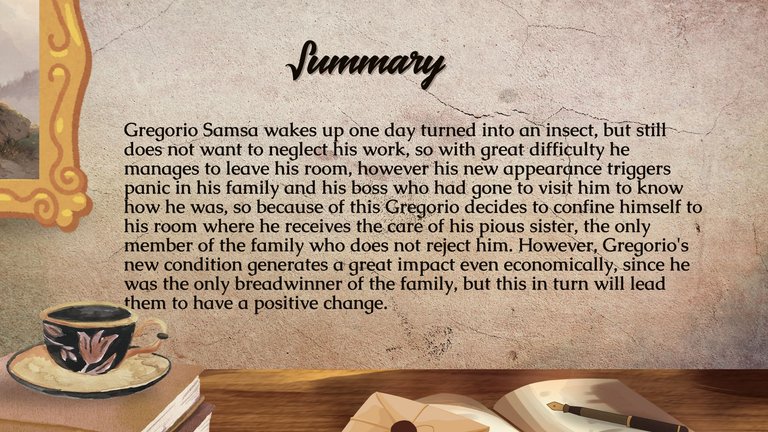
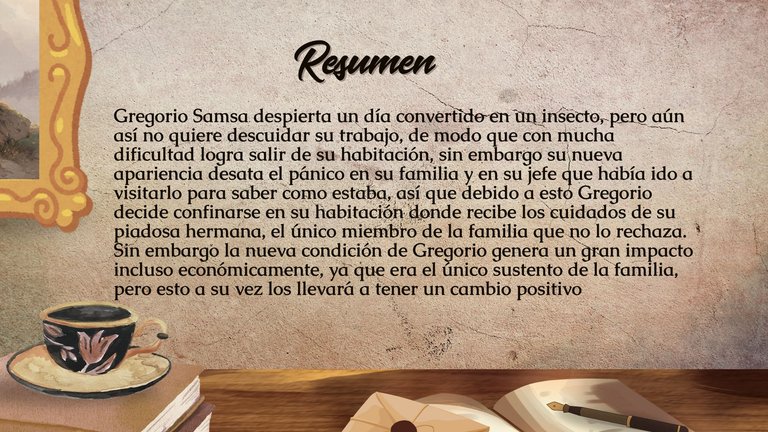
My Opinion/Mi Opinión
Wow! After reading this book I was left thinking about many things, for example how I identified with the protagonist, especially at the time when I worked for a company where I often felt undervalued and often exploited, which led me to a degree of introspection that without knowing it at the time, was almost Kafkaesque. And the fact is that what Kafka presents in the work is nothing more than a social critique of dehumanization and the way in which the world perceives the value of a person through his level of productivity. While Gregorio was a man in every sense of the word, he could leave his home to go to work, he was a productive being, in fact he was the only member of his family who was, he was important for them and also for the company where he worked because he could generate profits, however, once he is surprisingly disabled, they begin to see him as a nuisance, a burden and a shame.
Wow! Luego de leer este libre me quedé pensando en muchas cosas, por ejemplo en lo identificada que me sentí con el protagonista, sobre todo en la época en la que trabajaba para una empresa en la que muchas veces me sentí poco valorada y en muchas ocasiones explotada, lo que me llevó a un grado de introspección que sin saberlo en ese momento, era casi kafkiano. Y es que lo que Kafka nos plantea en la obra no es más que una critica social a la deshumanización y a la forma en que el mundo percibe el valor de una persona a través de su nivel de productividad. Mientras Gregorio era un hombre en toda la extensión de la palabra, podía salir de su hogar para ir a trabajar, era un ser productivo, de hecho era el único miembro de su familia que lo era, él era importante para ellos y también para la empresa en la que trabajaba porque podía generar ganancias, sin embargo una vez que sorpresivamente queda inutilizado, comienzan a verlo como un estorbo, una carga y una vergüenza.
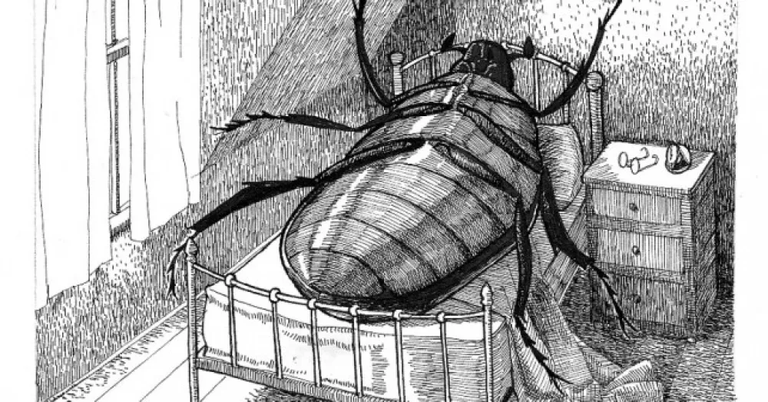
Over time his sister begins to reject him as well and no one has realized that, after Gregorio's new condition they had the opportunity to explore their own capabilities, becoming productive, generating profits for the household, but instead of thanking Gregorio, they now felt superior to him. In spite of everything he continues to feel like a human being, he feels homesick for his life, he feels pain at rejection, he misses being able to feel useful but this is due to a phenomenon called “Alignment”, which refers to the fact that the system had absorbed him in such a way that he felt like a cog in the economic machinery, completely forgetting his own dreams, annulling his personal projects, becoming something like “one more worker ant” that is, losing his essence, what made him really human.
Con el tiempo su hermana comienza a rechazarlo también y nadie se ha dado cuanta que, tras la nueva condición de Gregorio ellos tuvieron la oportunidad de explorar sus propias capacidades, volviéndose productivos, generando ganancias para el hogar, pero en lugar de agradecer a Gregorio, ahora se sentían superiores a él. A pesar de todo él continúa sintiéndose como un ser humano, siente añoranza de su vida, siente dolor ante el rechazo, extraña poder sentirse útil, pero esto se debe a un fenómeno llamado "Alineación", lo que se refiere a que el sistema lo había absorbido de tal manera que él se sentía como un engranaje de la maquinaria económica, olvidándose por completo de sus propios sueños, anulando sus proyectos personales, volviéndose algo así como "una hormiga obrera más" es decir, perdiendo su escancia, lo que lo hacía realmente humano.
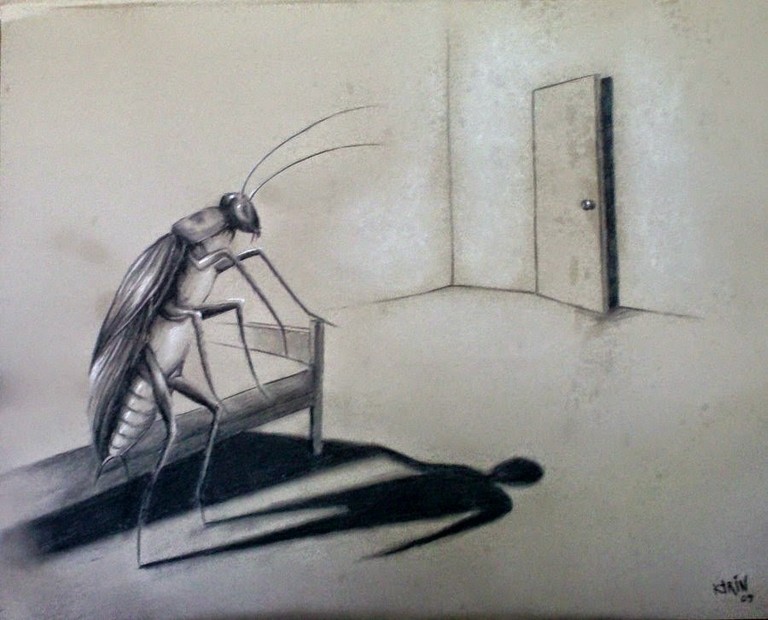
This led Gregorio to a degree of introspection and moral and social isolation, but how many times have we felt this way, especially when we do not meet the expectations of others? Our sense of humanity is really fragile because we get carried away precisely by the opinions and concepts that others have of us, perhaps our parents, bosses, neighbors, other relatives, co-workers, etc., especially when we reach an age when we begin to question who we really are and what we have achieved, because we are not as productive or successful as so-and-so. We live in an eternal loop of painful comparisons, forgetting our own needs, which in turn leads me to think about the “Superego” that Sigmund Freud posed in his psychoanalytic theory, which refers to the moral values and ideals that we bring from childhood through authority figures such as parents and family or teachers, which generates conflicts with the id (primary and instinctive desires and needs) and of course with the Ego (self-awareness, the ability to think and reason). This may seem complex but it is worth investigating and analyzing because it defines us completely.
Esto llevó a Gregorio a un grado de introspección y aislamiento moral y social pero ¿Cuántas veces nos hemos sentido así, especialmente cuando no cumplimos con las expectativas ajenas? Nuestro sentido de humanidad realmente es frágil porque nos dejamos llevar precisamente por las opiniones y conceptos que otros tienen de nosotros, tal vez nuestros padres, jefes, vecinos, demás familiares, compañeros de trabajo, etc, sobre todo cuando llegamos a una edad en la que empezamos a cuestionarnos quienes somos realmente y qué hemos logrado, porque no somos tan productivos o exitosos como fulano, mengano sultano. Vivimos en un bucle eterno de comparaciones dolorosas, olvidándonos de nuestras propias necesidades, lo que a su vez me lleva a pensar en el "Super yo" que planteaba Sigmund Freud en su teoría psicoanalítica, lo cual se refiere a los valores morales e ideales que traemos desde la infancia a través de figuras de autoridad como lo son padres y familiares o profesores, lo cual genera conflictos con el Ello (deseos y necesidades primarias e instintivas) y desde luego con el Yo (la conciencia de uno mismo, la capacidad de pensar y razonar) Esto puede parecer complejo pero vale la pena investigar y analizar al respecto porque nos define totalmente.
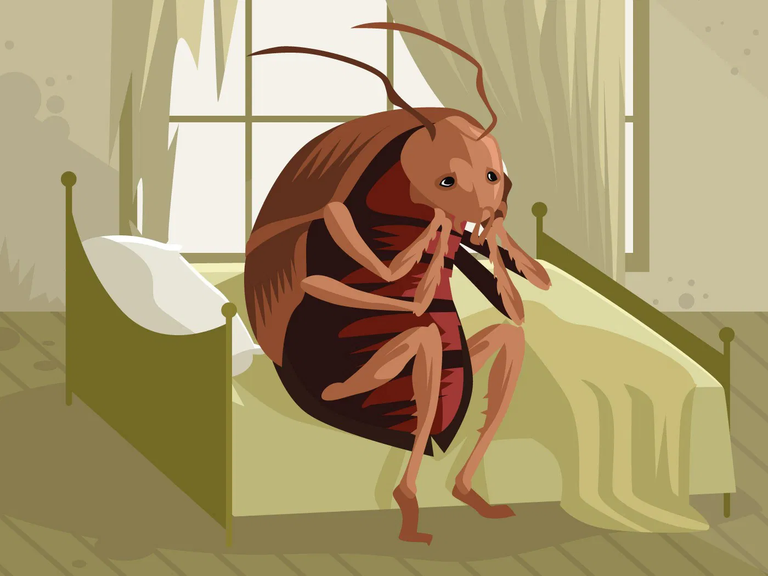
It is a book that I recommend reading especially after 30, although I really think that it is never too late or too early to reflect on these complex issues in life such as existentialism, alignment or dehumanization that often comes when we compare ourselves with others, we stop feeling useful or productive and even let ourselves be defeated, as happened to the protagonist of this story. The work is partly autobiographical or at least has a lot of the author himself and his stormy relationship with his own father, so this gives an extra point of interest to the book and makes it even more sobering.
Es un libro que recomiendo leer sobre todo después de los 30, aunque realmente pienso que nunca es demasiado tarde o demasiado temprano como para reflexionar acerca de estos temas tan complejos en la vida como lo son el existencialismo, la alineación o la deshumanización que a menudo viene cuando nos comparamos con otros, nos dejamos de sentir útiles o productivos y hasta nos dejamos vencer, como le pasó al protagonista de esta historia. La obra es en parte autobiográfica o al menos tiene mucho del propio autor y su relación tormentosa con su propio padre, así que esto le da un punto extra de interés al libro y lo vuelve aún más aleccionador.
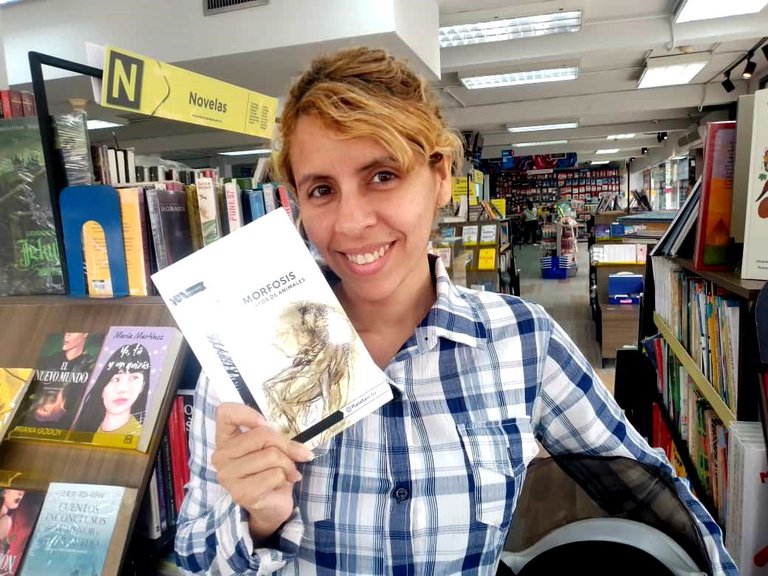

Thank you so much for reading my post, see you another time 😉 with another wonderful piece of work.
Muchas gracias por leer mi post, nos vemos en otra oportunidad 😉 con otra obra maravillosa.
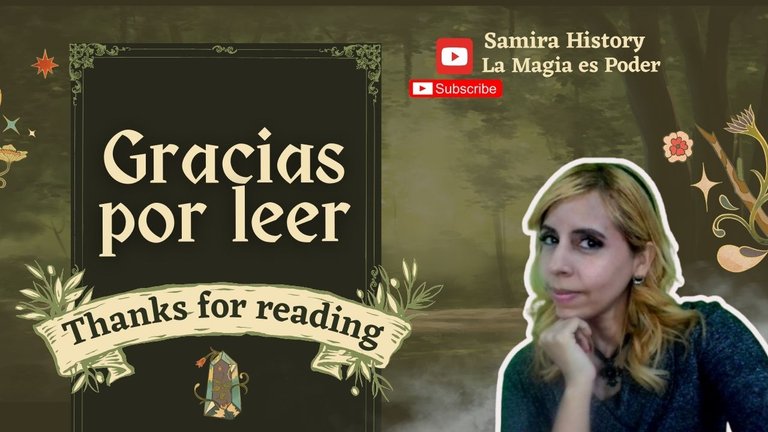
Imagen diseñada por mi en el editor de Canva.
All images in this post are my own, taken with a ZTE Blade A51.
Todas las imágenes de este post son de mi propiedad, las tomé con un teléfono celular ZTE Blade A51.
It's interesting - I just read The Metamorphosis last week. I still haven't really come to terms with it. It's a book that can bear many interpretations; certainly, there's much merit in the ones you present. I have to say, though, I didn't feel the desire to interpret the book. For me, it was more a question of experiencing the that level of pain - not only from Gregor, but from his family, too.
I'm not sure that I see the family or Grete as negative - though I know that's a pretty unusual reading. My sense is that they really did do the best they could do with an impossible situation for a period of time. If Grete snapped at the end, well, she's just human. When she mentions how thin she was, I thought there was a return of her compassion. And if the family seemed cold in their relief that it was over? Again, they were just human. They'd said goodbye to Gregor awhile ago - after all, they didn't know that he could still think or understand their speech. To me, the book is like listening to really heart-breaking Blues; I focused more on the feelings, the despair, than the meanings. I'm not saying those meanings aren't there - they just aren't what hit me when I re-read the book.
Of course, literature is art and art is suggestive, everyone gives it the interpretation that best suits him/her. For me, of course, the family situation was not easy, but neither did it help him much to ignore him or even threaten him with a cane or throw apples at him, that is, to treat him with contempt, and this is the representation of the relationship that Kafka himself had with his father, he involved many of his feelings and emotions in this and other of his works.
I have heard about this book and I've been contemplating reading it. It's quite different from what I usually read and the man turning into an ant(bug) sold me out. I was scrolling through Instagram one day and I saw a reel about it. Cause I love for books to be spoilt to me(I'm being sacarstic), I went ahead to read the comment section. Well, it is quite a plot—I said to myself. Amazing review by the way;)
I do love spoilers in both movies and books haha. I really recommend it, it is a book with a great depth even philosophical, but after reading it you will give it the interpretation that best suits you
I think that is due to the fact that it is partly philosophical. It is not just a story. I have not read the book though. But, I have heard about it before...
Hey, what an interesting review! And what emotion to find just the book you wanted and at a good price, all that you comment on how you felt identified with Gregory, especially in feeling little valued and exploited at work, my mother! I think it is something that many people can connect. It gives a lot to reflect, really. Thank you for sharing your experience and your analysis so deep!
Yes, indeed, it's a sentiment that many people share today, especially when doing jobs they don't like. Thank you very much for reading and commenting.
Me encantó tu post y tu análisis es excelente, amiga. A mí también me gustó mucho este libro, es una obra maestra. Lo leí hace unos años atrás para la facultad, aunque si mal no me acuerdo lo vimos muy por encima en la escuela secundaria, y realmente vale la pena. Es un libro que invita a la reflexión, a pesar de que es cortito, trata temas muy humanos y que son una realidad muy actual. La deshumanización del hombre aún ocurre y es algo de lo cual todos hablan pero nadie se ocupa. En fin... ¡Me encantó! Un abrazo. :)
Un abrazo también para ti, amiga hermosa, me alegra un montón que te haya gustado el análisis y el libro 😃 de verdad es una gran obra de Kafka